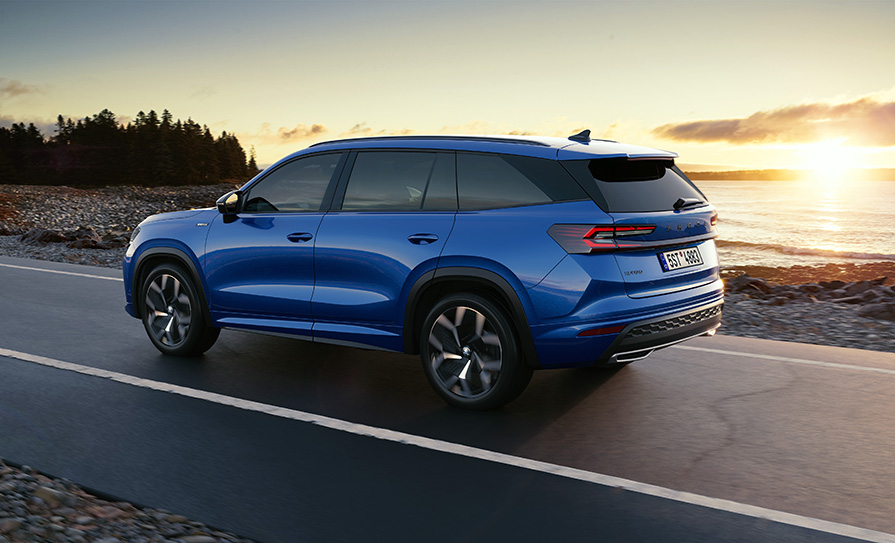Last year Rowan Atkinson wrote a letter to The Guardian saying we’ve been duped over electric cars. He stated his authority was based on his degree in electrical engineering and control systems, which were obtained before his comic genius was discovered. Atkinson claimed that the overall greenhouse gas production of an electric car was 70 per cent higher than an internal combustion engine (ICE) car and the battery lifespan was limited to 10 years.
Such was the impact of the article it was mentioned in the House of Lords as a contributor to the reduction in sales of battery electric vehicles (BEV). I haven’t seen any counter articles to this and can imagine the legal questioning (“Can you prove any of this? And when have you last worked as an engineer? And have you kept up-to-date with your CPD?”). These are the type of questions that keep us awake at night in the medical profession.
Over the years we have come to accept that the lifetime CO2 production of a BEV was less than the equivalent ICE, despite battery manufacturing requiring more CO2 input and chemicals than the ICE motor. Atkinson’s argument regarded the illogicality of selling (and, by inference, even scrapping) an ICE car that had already paid its ‘environmental dues’.
I could spend the rest of the article critically analysing his letter, but I want to use it to tell you of an alternative fuel available now.

HVO
At the time he made no mention of the arrival of hydrogenated vegetable oil (HVO) to the market. To be fair I hadn’t a clue either. However, for all intents and purposes, this will suit a lot of people who don’t have the ability to manage the planning necessary for a BEV, for whatever reasons.
The premise is that you will use used vegetable oil that has been “hydrogenated”. Because it uses hydrogen as a catalyst, rather than the more commonly used methanol, it’s cleaner. At a talk I recently attended, there were no chemists available to discuss the manufacturing process. However, the argument is that by using HVO, we will reduce our “additional” carbon emissions by up to 90 per cent. HVO is a second-generation biofuel made from pre-existing biowaste products, such as cooking and vegetable oil, from the food industry waste (first-generation biodiesel is made from crops such as rapeseed and soy). Not only that, but using HVO will result in lower sulphur, nitrous oxide (30 per cent), and particulate (86 per cent) emissions.
There are numerous advantages to using HVO. It has a longer shelf life than regular diesel, making it more practical for storage. Additionally, it’s suitable for extremely cold temperatures, such as those experienced during the coldest winters in Ireland (down to -30°C). Furthermore, HVO is biodegradable when spilled, thereby minimising its environmental impact. It can be used as a “drop-in” replacement for regular diesel, allowing for easy integration without modifications to existing diesel engines. Well mostly, I think. Skoda’s website offers a car checker tool to verify compatibility based on your vehicle registration number. Generally, all Skodas made from 2021 can use HVO, such as the new Skoda Superb and Skoda Kodiaq pictured with this article.
Skoda
The HVO launch I attended was jointly sponsored by Skoda and Certa Ireland. Skoda are proud of their achievements in Ireland and used the time to tell us about their plans to become number three here for new car sales (they are currently number four), as well as being the top non-German brand for new car sales in Germany. At the time of writing, the Skoda Octavia is the number three bestseller in Ireland for January and February. The diesel market remains alive and well with 22 per cent of the total passenger car market, with electric at 19 per cent (2023 figures). Skoda describes itself as a market leader in diesel passenger car sales with 22 per cent of the diesel car market.


To test the fuel, we drove a pink Skoda, a reminder that the handle for HVO fuel will be pink. There was no discernible difference in the driving characteristics of the car that we could tell. Certa have been using it in their truck fleet of over 100 trucks without issue. John Sisk and Sons, Ireland’s largest construction company, have mandated HVO for use across all their sites for future use.
Certa have several unmanned pumps dispensing HVO presently and their plan is for all fuel pumps to offer it alongside their existing fuels. As it is a new fuel it has a higher cost than the traditional diesel, but Certa are subsidising it to match the price of regular diesel to get it into the market. With time, and with increased usage, we expect prices will drop.
If Atkinson knew of HVO availability at the time of writing the letter, it would have added weight to his argument. I don’t think he will be inviting me for a coffee anytime soon to discuss this further.
Anyway, HVO meets the international fuel standard (BS EN 15940) and the Fuel Quality Directive 2009/30/EC Annex II. It is ethically procured with no palm oil. Additionally, it is described as being compatible with all leading commercial and industrial engines. However, to ensure safety and compatibility, I would suggest consulting the owner’s manual for your car or contacting the manufacturer directly.
But, in general, this looks like a clean and ethical alternative to our current diesel fuel.
HVO is currently available at Certa forecourt in Liffey Valley in Dublin; Lee Tunnel in Cork; and Trim in Meath. Certa is planning to have seven more forecourts HVO-ready by the end of this year. The forecourts planned to be fitted with HVO pumps are located in Dundrum, Tallaght, and Finglas in Dublin; Maynooth in Kildare; Letterkenny in Donegal; and Athlone and Mullingar in Westmeath.













Leave a Reply
You must be logged in to post a comment.